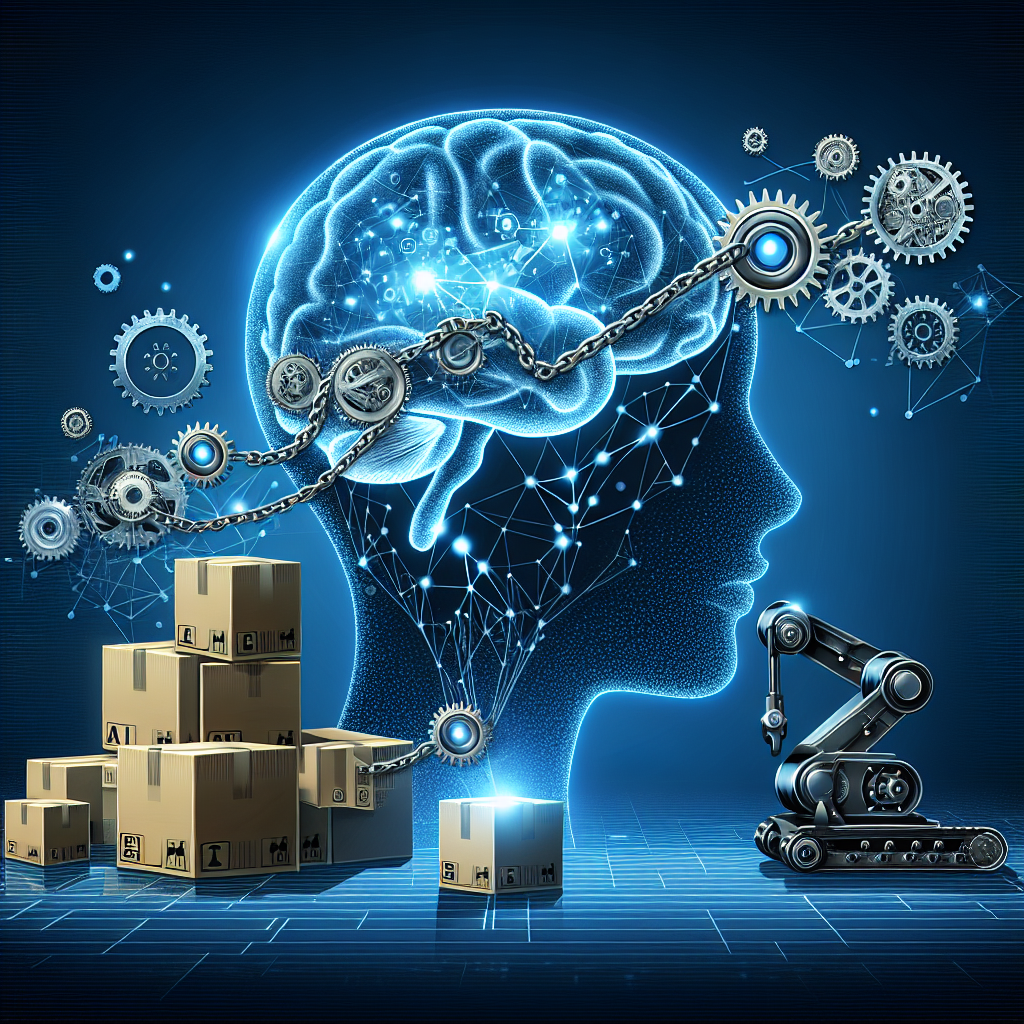In today’s fast-paced and complex global supply chains, visibility and risk management are two critical challenges that companies face. With the increasing complexity of supply chains, it has become more challenging for companies to track and manage their suppliers, inventory, and logistics in real-time. This is where AI automation comes into play as a solution to enhance supply chain visibility and improve risk management.
AI automation refers to the use of artificial intelligence technologies, such as machine learning, natural language processing, and predictive analytics, to automate repetitive tasks and processes in supply chain management. By leveraging AI automation, companies can gain real-time visibility into their supply chain operations, identify potential risks, and make data-driven decisions to optimize their supply chain performance.
One of the key benefits of AI automation in supply chain management is its ability to provide real-time visibility into the entire supply chain network. By collecting and analyzing data from various sources, such as sensors, RFID tags, and enterprise systems, AI algorithms can provide companies with a comprehensive view of their supply chain operations. This visibility enables companies to track the movement of goods, monitor inventory levels, and identify potential bottlenecks or disruptions in real-time.
Moreover, AI automation can help companies improve risk management by identifying and mitigating potential risks in their supply chain. By analyzing historical data and predicting future trends, AI algorithms can identify potential risks, such as supplier disruptions, demand fluctuations, or geopolitical issues, and recommend proactive measures to mitigate these risks. This proactive approach to risk management can help companies reduce the impact of disruptions on their supply chain operations and improve overall resilience.
Another key benefit of AI automation in supply chain management is its ability to optimize supply chain processes and improve operational efficiency. By automating manual tasks, such as data entry, order processing, and inventory management, AI algorithms can streamline supply chain operations and reduce human errors. This automation can help companies save time and resources, improve accuracy and reliability, and enhance overall supply chain performance.
Furthermore, AI automation can help companies enhance collaboration and communication with their suppliers and partners. By providing real-time visibility into supply chain operations, AI algorithms can facilitate better communication and coordination between different stakeholders in the supply chain network. This collaboration can help companies improve decision-making, resolve issues quickly, and build stronger relationships with their suppliers and partners.
In conclusion, AI automation is a powerful solution for enhancing supply chain visibility and improving risk management. By leveraging AI technologies, companies can gain real-time visibility into their supply chain operations, identify potential risks, and make data-driven decisions to optimize their supply chain performance. AI automation can help companies streamline supply chain processes, improve operational efficiency, and enhance collaboration with their suppliers and partners. As supply chains continue to evolve and become more complex, AI automation will play an increasingly important role in helping companies navigate these challenges and achieve competitive advantage in the marketplace.
FAQs:
Q: How does AI automation improve supply chain visibility?
A: AI automation improves supply chain visibility by collecting and analyzing data from various sources, such as sensors, RFID tags, and enterprise systems, to provide companies with a comprehensive view of their supply chain operations in real-time.
Q: How does AI automation help in risk management?
A: AI automation helps in risk management by analyzing historical data and predicting future trends to identify potential risks, such as supplier disruptions, demand fluctuations, or geopolitical issues, and recommend proactive measures to mitigate these risks.
Q: What are the key benefits of AI automation in supply chain management?
A: The key benefits of AI automation in supply chain management include real-time visibility, improved risk management, operational efficiency, and enhanced collaboration with suppliers and partners.
Q: How can companies implement AI automation in their supply chain operations?
A: Companies can implement AI automation in their supply chain operations by leveraging AI technologies, such as machine learning, natural language processing, and predictive analytics, to automate repetitive tasks and processes in supply chain management. Companies can also partner with AI technology providers or develop in-house AI capabilities to implement AI automation in their supply chain operations.

